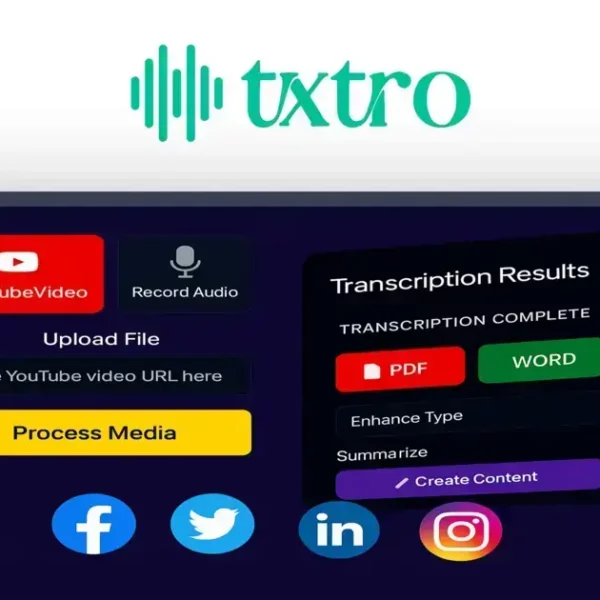Choosing the right CRM system can significantly enhance customer relationships and streamline operations. Popular options like Salesforce, HubSpot, and Zoho provide essential features tailored for diverse business needs, making it easier to manage customer interactions and drive growth effectively.
Types of CRM systems play a crucial role in how businesses manage their customer relationships and improve overall efficiency. By understanding these systems, companies can tailor their approach to meet customer needs effectively. In this article, we will explore the various types of CRM systems, their benefits, and how to select the right one for your business.
Understanding CRM Systems
Understanding CRM systems is essential for businesses aiming to enhance their customer relations and streamline operations. CRM, or Customer Relationship Management, refers to strategies and technologies used by companies to manage interactions with current and potential customers.
What Is a CRM System?
A CRM system is a software solution that helps organizations manage customer data and interactions. It consolidates information from various channels, enabling teams to access and share data efficiently.
Key Components of CRM Systems
CRMs typically include features such as contact management, sales management, support automation, and analytics. These components help businesses understand customer behavior, track sales performance, and improve communication.
Types of Users
Different teams within a business may use CRM systems, including sales, marketing, and customer service. Each team benefits from the shared data, leading to better coordination and improved customer experiences.
Importance of Understanding CRM Systems
Being knowledgeable about CRM systems allows businesses to leverage technology to its fullest potential. This understanding aids in selecting the right CRM solution and maximizing its use for better customer relationships.
Different Types of CRM Systems Explained

Different types of CRM systems cater to various business needs, allowing companies to choose solutions that best align with their goals. Understanding these types is critical for effectively managing customer relationships.
Operational CRM
Operational CRM focuses on automating and improving customer-facing processes, such as sales, marketing, and customer service. This type ensures streamlined interactions and helps manage leads efficiently. Key features include sales automation tools and customer support functionalities.
Analytical CRM
Analytical CRM is designed for analyzing customer data and behaviors. It helps businesses gain insights from data analytics, which can improve decision-making and strategies. This type of CRM helps identify segments, track customer journeys, and measure campaign effectiveness.
Collaborative CRM
Collaborative CRM focuses on improving communication and collaboration among various departments within a company. It helps share customer information across teams, enabling better service and cohesion. This type enhances customer experience by providing a unified approach.
Strategic CRM
Strategic CRM emphasizes long-term customer relationship building. It collects comprehensive data to develop targeted strategies that foster customer loyalty. This approach is vital for aligning business objectives with customer needs.
Choosing the Right CRM Type
When selecting a CRM system, businesses should consider their specific needs, goals, and the scale of their operations. Evaluating how each type complements the business model can lead to better customer relationship management.
Benefits of Using CRM Systems
Benefits of using CRM systems are numerous and can significantly transform how businesses interact with customers. These systems help enhance customer satisfaction and improve overall productivity.
Enhanced Customer Relationships
One primary benefit of CRM systems is the ability to strengthen customer relationships. By managing customer data efficiently, businesses can tailor their interactions, making customers feel valued and understood.
Improved Communication
CRM systems facilitate better communication both internally and externally. Teams can share insights and updates instantly, ensuring that everyone is on the same page regarding customer interactions and needs. This transparency leads to more cohesive service.
Increased Sales and Revenue
Implementing a CRM can lead to higher sales and revenue. By organizing customer information, businesses can identify trends and target marketing efforts more effectively. This can result in more successful sales strategies and increased conversion rates.
Efficient Data Management
CRM systems streamline data management. Instead of scattered information across multiple platforms, businesses can consolidate data in one place. This centralization enhances access to vital information and reduces the risk of data loss.
Better Analytical Insights
With CRM systems, businesses can analyze customer behavior and sales data. These insights help refine marketing strategies and improve decision-making processes. Understanding customer preferences and trends can lead to more tailored and effective business approaches.
How to Choose the Right CRM System

How to choose the right CRM system is a pivotal decision for any business aiming to improve customer relationships and streamline operations. The right choice can significantly enhance efficiency and satisfaction.
Identify Your Business Needs
The first step in choosing a CRM system is understanding your specific business needs. Consider aspects like the size of your team, the type of customer interactions you manage, and your sales process. This will help narrow down the features you require.
Evaluate Features
Different CRM systems come with various features, so evaluating them is crucial. Look for essential functionalities like contact management, lead nurturing, reporting, and integration capabilities with other tools you use. Prioritize features that align best with your business goals.
Consider Usability
User-friendliness is another critical factor to consider. A complex system may lead to frustration and decreased adoption among your team members. Opt for a CRM that offers a simple interface and easy navigation so employees can quickly get accustomed to it.
Look for Integration Capabilities
Your chosen CRM should seamlessly integrate with existing tools like email platforms, marketing software, and social media channels. This integration helps centralize data and enhances the overall functionality of your business operations.
Check for Customer Support and Training
Reliable customer support and training resources are vital when selecting a CRM system. Ensure the provider offers adequate assistance, including tutorials, documentation, and support services. This will greatly help during the implementation phase and beyond.
Top CRM Systems on the Market
Top CRM systems on the market offer various features designed to meet different business needs. Here are some of the most popular CRM systems and what they bring to the table.
Salesforce
Salesforce is one of the leading CRM systems available today. It provides a comprehensive suite of tools for managing sales, marketing, and customer service. Its extensive customization options and scalability make it suitable for businesses of all sizes.
HubSpot CRM
HubSpot CRM is known for its user-friendly interface and free tier for small businesses. It offers essential functionalities like contact management, email tracking, and marketing automation. Its seamless integration with other HubSpot tools is a significant advantage.
Zoho CRM
Zoho CRM is an affordable option that caters to small and medium-sized enterprises. It provides a wide range of features, including sales automation, marketing automation, and analytics. Zoho also offers excellent customization and integrations with various applications.
Microsoft Dynamics 365
Microsoft Dynamics 365 is a robust CRM solution that integrates well with other Microsoft products. It offers advanced analytics, customer insights, and customizable solutions tailored to different business needs, making it a strong contender for larger organizations.
Pipedrive
Pipedrive is designed for sales teams to manage leads and deals efficiently. Its visual sales pipelines and activity reminders help teams stay focused and organized. Pipedrive is especially popular among small businesses seeking a straightforward solution.
Choosing the Right CRM System Can Transform Your Business
Implementing a CRM system can significantly enhance the way businesses interact with customers and manage daily operations. Understanding the types of CRM systems, their benefits, and how to choose the right one is essential for success.
With options like Salesforce, HubSpot CRM, Zoho CRM, Microsoft Dynamics 365, and Pipedrive, businesses have various tools at their disposal to meet their needs.
By selecting a CRM system that aligns with your specific requirements, you can improve customer relationships, streamline communication, and ultimately drive growth. Investing in the right CRM technology can lead to long-term success and satisfaction for both your business and your customers.
FAQ – Frequently Asked Questions about CRM Systems
What is a CRM system?
A CRM system is a tool that helps businesses manage customer data and interactions, improving communication and relationships.
What are the benefits of using a CRM system?
Using a CRM helps enhance customer relationships, improve communication, streamline data management, and increase sales.
Which CRM system is best for small businesses?
HubSpot CRM is popular among small businesses for its user-friendly interface and free tier, but options like Zoho CRM and Pipedrive are also great.
How do I choose the right CRM system for my business?
Identify your specific needs, evaluate available features, consider usability, and check for integration capabilities to find the right fit.
Can CRM systems improve sales performance?
Yes, CRM systems can boost sales performance by organizing customer information, tracking leads, and enabling targeted marketing efforts.
What should I look for in CRM customer support?
Look for responsive customer support, access to training resources, and comprehensive documentation to help with implementation and ongoing use.




